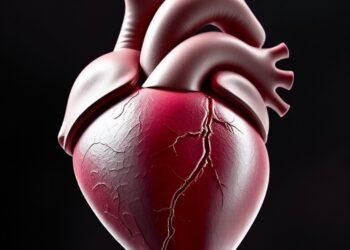Seeking a method for reducing error in noisy quantum systems, Kajsa Williams and Louis-S. Bouchard, researchers at the Center for Quantum Science and Engineering at the University of California, Los Angeles, implemented and evaluated single-qubit gates performance using specially designed composite and adiabatic pulses. While they found no particular advantages in terms of leakage and seepage of the gates compared to standard gates, robustness to control field error was greatly improved. Their research was published Feb. 19, 2024 in Intelligent Computing, a Science Partner Journal.
Seeking a method for reducing error in noisy quantum systems, Kajsa Williams and Louis-S. Bouchard, researchers at the Center for Quantum Science and Engineering at the University of California, Los Angeles, implemented and evaluated single-qubit gates performance using specially designed composite and adiabatic pulses. While they found no particular advantages in terms of leakage and seepage of the gates compared to standard gates, robustness to control field error was greatly improved. Their research was published Feb. 19, 2024 in Intelligent Computing, a Science Partner Journal.
Quantum computing on modern noisy intermediate-scale quantum devices is still only advantageous for specific applications. Attempting to increase the duration and complexity of computations performed on these devices quickly leads to the accumulation of an unacceptable amount of error. Improving the robustness of the gates to control system drift would mitigate the accumulation of errors and thus increase the range of possible applications of quantum computing. Williams and Bouchard’s designs for composite and adiabatic pulses to implement single-qubit gates improved robustness by nearly an order of magnitude.
Williams and Bouchard used the software tool Qiskit and the IBM Quantum Experience (IBM-QE) platform to implement and validate composite pulses and adiabatic pulses for controlling a superconducting qubit. They performed calibration procedures to determine a carrier frequency for the pulses that would allow them to demonstrate improvement relative to the default pulse. After choosing parameters for the composite pulses, they simulated the effect of the pulses using Python. Python was also used to search for parameters for the adiabatic pulses they designed prior to their implementation and validation on IBM-QE.
They used their specially designed pulses — a variety of Gaussian, DRAG, and HS1 pulses — to control a transmon qubit on the IBM-QE platform and the Lima superconducting quantum processor. Randomized benchmarking was used for performance evaluation. Adiabatic full passage pulses were the most robust of the pulses tested. According to the authors, “the successful implementation of [adiabatic full passage] pulses only 2.8 to 5 times longer than single pulses makes composite [adiabatic full passage] schemes possible; otherwise, such pulses would consume an untenable proportion of the intrinsic coherence time.”
Future work could focus on reducing errors themselves by mitigating leakage and seepage. Leakage refers to the phenomenon where a qubit transitions from the states designated for computation into higher energy states that are not part of the computational operations. This can occur due to imperfections in control pulses or interactions with the environment. Leakage is problematic because it can lead to errors that are not easily corrected by standard quantum error correction techniques. Seepage is a related concept and refers to the rate at which qubits return from the leakage state. Seepage is also problematic because some qubits return to the wrong states. Both leakage and seepage are important factors in assessing the fidelity and robustness of quantum operations on NISQ devices.
Journal
Intelligent Computing
Method of Research
Experimental study
Subject of Research
Not applicable
Article Title
Quantification of Robustness, Leakage, and Seepage for Composite and Adiabatic Gates on Modern NISQ Systems
Article Publication Date
19-Feb-2024
COI Statement
The authors declare that they have no competing interests.




